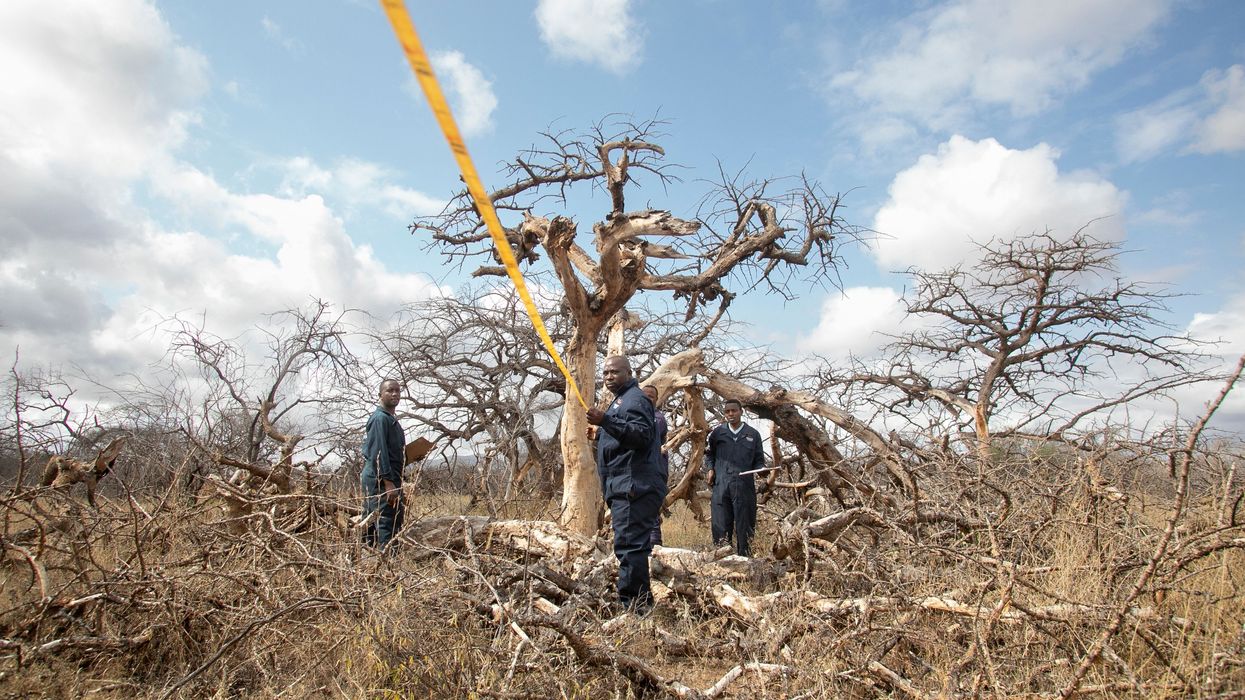'Geoengineering Fails Again': Coalition Cheers End of Arctic Ice Project
One campaigner said the cancellation "marks another monumental victory for our planet and future generations, a victory where Indigenous peoples' resistance has been central."
Environmental and Indigenous activists declared Thursday that "geoengineering fails again," welcoming the shutdown of a project that aimed to use "a reflective material to protect and restore Arctic sea ice," which is rapidly disappearing as humanity's reliance on fossil fuels heats the planet.
Noting that "we committed to moving forward only if we could conclusively demonstrate both the safety and effectiveness of our approach," the Arctic Ice Project team confirmed in an online statement that it "will be concluding its research and winding down the organization."
"While our climate impact simulations have shown promising results (with a new scientific paper forthcoming), recent ecotoxicological tests have revealed potential risks to the Arctic food chain," the team said. "Our initial approach was to continue research aimed at addressing these concerns. Upon further reflection, however, the board decided that the combination of these new test results with broad skepticism toward geoengineering, resistance to introducing new materials into the Arctic Ocean, and the increasingly challenging funding environment (and paucity of federal research dollars), the most realistic path was to conclude our research."
"Nature is not a laboratory; it is a living entity we are in relationship with."
Responding in a Thursday statement, Hands Off Mother Earth Alliance global coordinator Coraina de la Plaza said that "the cancellation of the Arctic Ice Project marks another monumental victory for our planet and future generations, a victory where Indigenous peoples' resistance has been central. This outcome reflects the power of community advocacy, and while the fight against geoengineering is far from over, this is a significant step to continue protecting the Arctic against industry greed and vested interests."
Panganga Pungowiyi, climate geoengineering organizer at Indigenous Environmental Network, called the decision "long overdue."
"We are concerned for the community members in Utqiaġvik who were made to spread football fields of this material onto their frozen lake. For years, we stood in defense of Indigenous lands and the sacred ice that has sustained our communities for generations," Pungowiyi explained. "Our concerns about the reckless use of harmful materials were dismissed, yet we knew that the health of our ecosystems and the wisdom of our people must not be overlooked. We continually showed up in defense of free prior and informed consent, and made our presence known."
"We continue to state firmly that nature is not a laboratory; it is a living entity we are in relationship with," the organizer added. "While we find relief in this victory, we remain vigilant against other forms of geoengineering that threaten our sacred spaces. Together, we will continue to educate and empower our communities, standing with our lands, waters, and air for the generations to come."
Silvia Ribeiro, Latin America director at ETC Group, said that "today we celebrate the wisdom, experience, and work of Indigenous peoples and organizations in Alaska that stopped this project and stand in solidarity with their vigilance against similar experiments that are planned in Arctic regions."
Mary Church, geoengineering campaign manager at the Center for International Environmental Law, also framed the development as "a huge victory for the Indigenous communities at the forefront of resistance to the industries and vested interests that are polluting the planet and gambling with our collective future."
"Geoengineering approaches do nothing to address the root causes of the climate crisis and instead delay real solutions, offering a free pass to polluters," she stressed. "Following the recent reaffirmation of the global moratorium on geoengineering at the U.N. biodiversity summit in Colombia, governments need to act to prevent harmful outdoor experiments and the slippery slope to legitimizing deployment. Instead of betting on highly speculative techno-fixes, governments must prioritize an urgent and just transition away from fossil fuels to protect vital Arctic ecosystems."
Benjamin Day, a senior campaigner for climate and energy justice at Friends of the Earth U.S., also looked to the fight ahead.
"The decision to shut down the Arctic Ice Project completes the Geoengineering Hype Cycle that we now see so often: Entrepreneurs swoop into local communities claiming they have a solution to global warming, assuring everyone it's completely safe and ignoring the red flags raised by those with deep knowledge of local ecosystems," Day said. "After countless wasted dollars and press attention, it's revealed the community was right and geoengineering is not a safe or responsible way to address climate change."
"Collectively," he argued, "we must stop enabling this cycle and work towards rapidly and equitably transitioning our communities to sustainable energy and land-use practices."
The winding down of the Arctic Ice Project comes amid global fears about what the recent return of Republican U.S. President Donald Trump—who cozied up to Big Oil executives on the campaign trail and promised to "drill, baby, drill," despite the devastating impacts of fossil fuels—will mean for the future of a planet that last year saw record-shattering temperatures.
Already, Trump has
ditched the Paris climate agreement (again), lifted a freeze on new liquefied natural gas exports, declared a "national energy emergency," and named various fossil fuel allies to key positions. Environmental Protection Agency Administrator Lee Zeldin and Transportation Secretary Sean Duffy took their posts earlier this week, Interior Secretary Doug Burgum was confirmed by the Republican-controlled Senate Thursday evening, and Chris Wright, Trump's pick for energy secretary, awaits confirmation.


